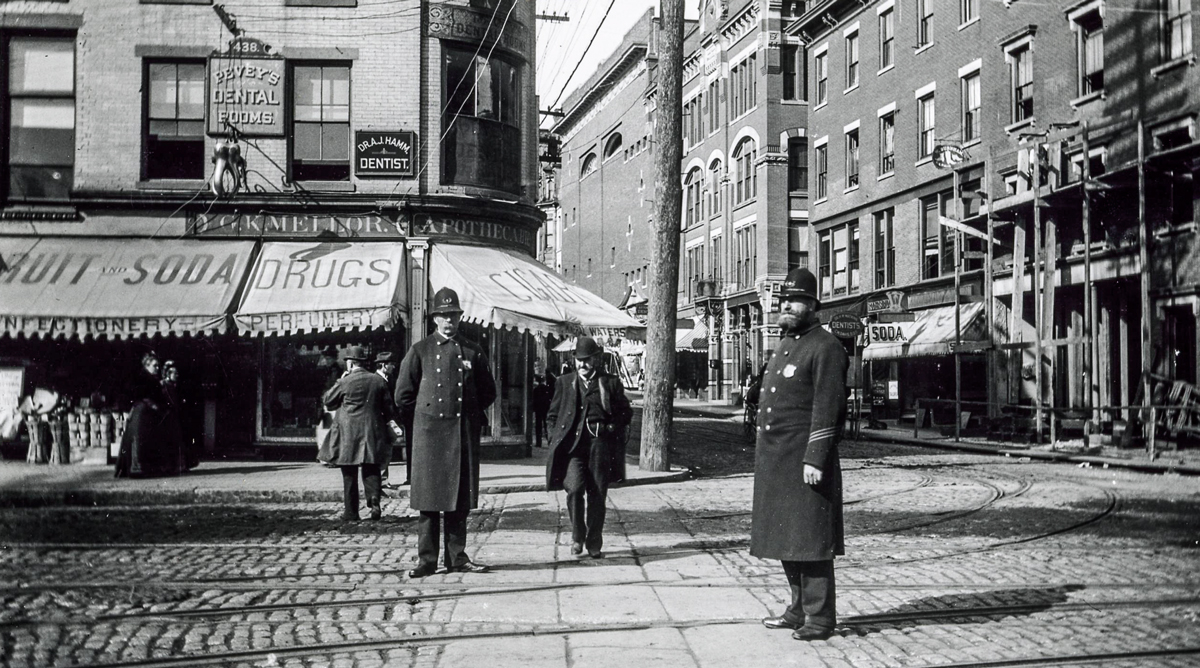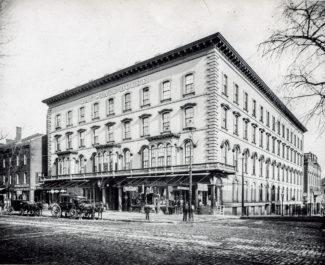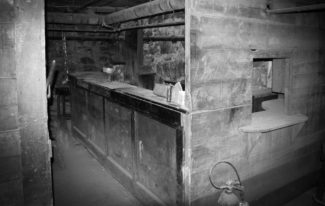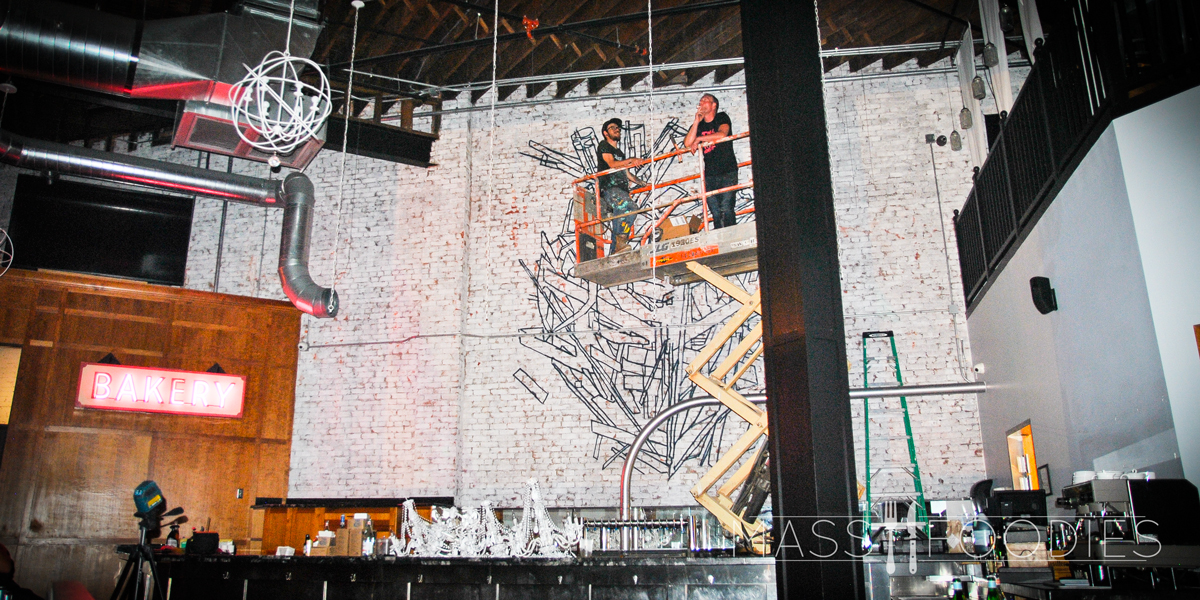
In 2017, Worcester’s restaurant scene welcomed a number of newcomers to the table in our proverbial dining room, which continues to grow at a rapid rate. Ramen bowls, butcher blocks, Szechuan sandwiches, and wine wars all found their welcome here. Still, a few of our biggest breaks bid so long (and in one case, good riddance) to members of the culinary community. Here are the top 17 Mass Foodies stories of 2017:
-
- Sweet Closes: Television darling, Alina Eisenhauer announced Sweet Kitchen and Bar’s last day of service in July. The closing marked a new beginning for Eisenhauer who has turned her attention to consulting, private events, and the growth of her YouTube channel.
- Broth: The minds behind The Hangover Pub launched a new concept in October called Broth. The adjacent space marked an entry point for ramen in Worcester, toting approachable bowls inspired by American traditions like Thanksgiving. Executive Chef Michael Arrastia explained to Mass Foodies that the inspiration for Broth came during a visit to momofuku, citing his admiration for Chef David Chang.
- simjang: Upon Sweet’s exit, the deadhorse hill team unveiled their plans for a new concept at 72 Shrewsbury Street called simjang – a concept dedicated to Korean culture and cuisine. Mass Foodies was awarded the first look inside, where internationally renowned artist Arlin Graff was hard at work on a heartfelt custom mural. Executive Chef Jared Forman gleaned plenty of experience in his three years working for Chef David Chang at momofuku noodle bar and momofuku Ssäm Bar. You can kiss 2017 goodbye and needle deadhorse employees for the simjang scoop as they recreate an original menu from the historic Bay State House hotel on New Year’s Eve.
- The Queen’s Cups Relocates to the Canal District: The Canal District erupted with excitement last January when The Queen’s Cups announced that it would be moving to Worcester. Since then, the previous home of Bucky’s Garage has been overtaken with cupcakes, pupcakes, and Mass Foodies’ personal favorite – Matildas. Perhaps the biggest success story of all is that owner Renee King has established 56 Water Street as a wifi-free-zone where friends and neighbors gather regularly to share in one another’s company. Unimaginable!
- Nonna’s & STEAM on Ice: In February, Niche Hospitality Group outlined its fast-casual bundle for the Worcester Ice Center as an integral piece of Cliff Rucker’s community hockey vision. A year later, Nonna’s Pizza & Pasta and STEAM Energy Cafe have officially opened their doors (and their parking lots) to the Canal District neighborhood.
- Sonoma Checks Into The Beechwood: Sonoma Restaurant surprised everyone in May when chef/owner Bill Brady announced that he would be relocating his highly regarded Princeton establishment to the four diamond Beechwood Hotel in Worcester. For Brady, the shift meant a departure from his role at Worcester Technical School in order to keep up with the demands of a full service restaurant.
- Kummerspeck: All eyes were on Rachel Coit and Matt Mahoney, proprietors of Kummerspeck. Kummerspeck, which translates from German as “grief bacon,” opened in August after a series of local pop ups. The Water Street eatery serves up reimagined comfort food as well as the adventurous offerings of a classic butchershop. Both chefs cut their teeth in Boston’s dining scene, working for famed chef/restaurateur, Barbara Lynch. Coit, former Sportello sous Chef, and Mahoney, former ButcherShop chef de cuisine, eased into the central Mass dining scene with stints at BT’s Smokehouse and Armsby Abbey.
- The Rice Truck: Teri Goulette first worked her way into our hearts with one of the region’s most popular food trailers, Say Cheese! August marked the purchase of Goulette’s first official food truck, The Rice Truck, inspired by her mother’s famous fried rice recipe.
- Sushi Miyazawa: Chef and Owner Norihiko “Nori” Tsukuda boasts 30 years of sushi experience, including his time training with the chef to the Emperor of Japan. In July, Mass Foodies was introduced to Sushi Miyazawa’s modest decor as well as its modest prices. The Chandler Street space seats just 20 customers at a time and allows patrons to BYOB.
- Rogers Leaves Niche for Food Hub: It seemed Chef Rogers was everywhere in 2017. As the Executive Chef de Cuisine of Niche Hospitality Group, Rogers forged relationships in countless facets of the community. In many ways, Rogers’ announcement in March that he had accepted a position as Kitchen Operations Manager of the Worcester Regional Food Hub came as no surprise. Given his staunch commitment to the city of Worcester, it was only a matter of time before his humanitarian nature led him down the path to public service.
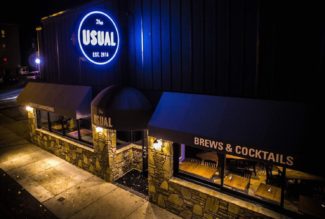
-
- The Usual, The Chameleon, and The Conviction: Someone else exited Worcester’s restaurant scene on the very same day as Chef Rogers, albeit less gracefully. Owner of now defunct establishments, The Blackstone Tap and The Usual, Kevin A. Perry was arrested and charged in connection with using the proceeds of drug sales to purchase and renovate nine properties in Worcester County, including both restaurants. Soon after, The Usual became The Chameleon, which we found shuttered in November. This week, we learned U.S. District Judge Timothy Hillman granted government control for sale of both properties. Here’s hoping 2018 brings a fresh start.
- Worcester Wine Festival: In October, Worcester’s Inaugural Wine Festival drew over 1,300 attendees to festivities that included a grand tasting, brunches, paired dinners, and educational seminars. Mass Foodies is already looking forward to another round of wine events in 2018 from September 4th-9th.
- Mama Roux: Jonathan Demoga’s custom food trailer, Mama Roux, took up residency in The Dive Bar’s beer garden in May. Demoga gained his expertise in southern cuisine while working for the famed Brennan Family of New Orleans. Mama Roux has already built a cult following around its Szechuan Hot Chicken Sandwich which is very particular in its use of Regal Crown Pickles, an artisan pickle producer based in Worcester. The coveted sandwich is made with buttermilk fried free-range organic chicken thighs, doused with szechuan spiced chili oil, and served on a Martin’s potato roll.
- Josephine: In November, The Hanover Theatre for the Performing Arts announced that Chris Rassias of Holden had signed a lease to open Josephine, a new restaurant anticipated to launch before the close of their spring season. Rassias shared with Mass Foodies that the concept would be inspired by the traditional aesthetic of 1920’s theater.
- Farewell to Chef Evangelous: In December, Armsby Abbey owner Sherri Sadowski wrote a heartfelt goodbye to longtime Executive Chef Damian Evangelous who will be moving to California with his wife Lauren (Revelry Coffee) in February. Executive Sous Chef Sean Dacey will assume his role as the new head of Armsby Abbey’s kitchen.
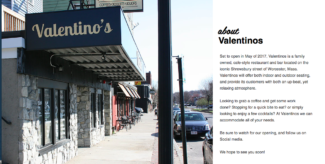
- Valentino’s: In April we had hope that the dormant former home of Cafe Dolce would find a rebirth with the ushering in of Valentino’s Press and Pour. While “press and pour” connotes morning for most, Valentino’s hours are geared toward afternoon and evening customers with the exception of Sunday brunch. If Cafe Dolce could make it work in the aughts, we’re sure they will too, but the coffee program absolutely needs sprucing.
- Bootlegger’s Folds to Living Earth: We weren’t surprised when we learned in September that Bootlegger’s Prohibition Pub would be closing in favor of a Living Earth expansion. The Chandler Street sign reading, “SECRET ENTRANCE AROUND BACK,” was a little on the nose. Regardless, Mass Foodies is crazy for all-natural, wholesome shopping and as far as we’re concerned, Living Earth is a Worcester institution.

